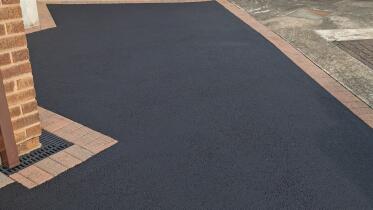-
Does applying the block paving sealer kill all weeds?
We cannot guarantee that this will be the case. After the ‘cleaning’ process we suggest applying a ‘weed killer’. After re-sanding, the acrylic block paving sealer will ‘sand bind’ and protect the sanded joints, this will help reduce and make it a lot more difficult for weeds to put down their roots again. But further growth can always occur unless a small amount of general 'upkeep' is maintained*
* Please see 'application guide' supplied with block paving sealer.
-
What kind of driveway or patio cleaning equipment would you recommend?
A standard power washer will do the job, but one with a rotary head* style accessory is recommended for driveway cleaning and patio cleaning. As a general rule, the more powerful the washer, the less time it will take.
-
What are the major benefits of applying block paving sealer to my driveway?
If your block paving has sealer applied properly then any future deterioration will be extremely minimal. The acrylic sealer enhances the colour of the block paving, minimises colour loss from ultra violet light, protects against oil stains, weeds and algae growth. It also solidifies the sand in the joints of the block paving which gives further overall protection.
-
How many coats of block paving sealer would you recommend?
Dependent on the type of block paving laid 2 coats recommended*, then "top up"coats can be applied periodically as required.
* For technical advice on your specific type of surface and the number of coats required please call Smartseal on (01) 649 9053.
-
I do not have the time for DIY restoration of my paving , will you come and do all the work for me?
Yes, Smartseal approved driveway and patio cleaning contractors cover most parts of the country.
-
After my driveway has had block paving sealer applied, how easy is it to clean off new oil and dirty stains?
Once sealer has been applied the block paving will be far less porous so any further staining will be easily removed. In most cases undiluted washing up liquid will be sufficient. In bad cases we advise the use of Oil Stain Remover available from Smartseal to solve the problem.
Delivery
From €4.05*
#1 Top rated cleaning supplier
on trustpilot
UK Manufactured
since 2008
STEP-BY-STEP GUIDE
View All
Tarmac Repair and Application of Tarmaseal™
Popular Questions:
View All FAQs
Customer Peace of Mind
If you are contacted by anyone offering a service and claiming to represent Smartseal - PLEASE BE CAUTIOUS - Contact us to verify they are a genuine Smartseal Registered Agent. Unfortunately, unlawful use of Replica Logos, Leaflets & Stickers is common.

